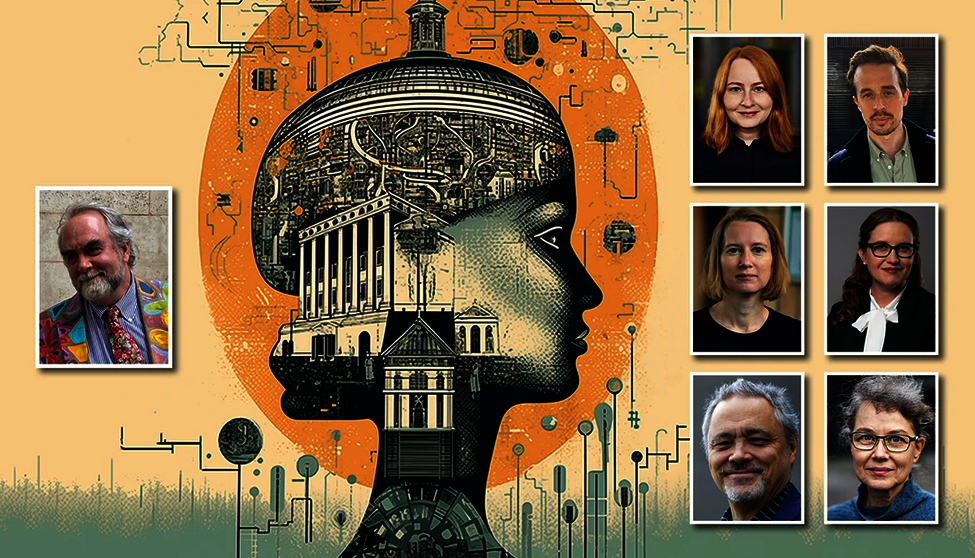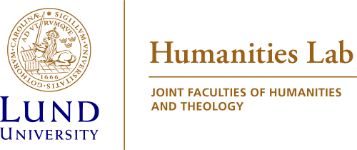AI challenges research in the Humanities

How can researchers in the Humanities meet the challenges posed by ChatGPT and other applications of generative AI? This was the theme of Huminfra's first webinar for which over 100 participants across Sweden registered.
“It is wonderful that so many people wanted to participate. It is a topic that engages! We also take this as an indication of the importance of Huminfra for researchers in digital and experimental Humanities. This impression is further bolstered by the fact that we have received many contributions to the first Huminfra conference to be held in January 2024 in Gothenburg”, says Marianne Gullberg, director of Huminfra and director of Lund University Humanities Lab.
Skills in dialogue dominate the concept of intelligence
The webinar began with a keynote by Geoffrey Rockwell , University of Alberta, Canada, who gave a historical perspective on how the ability to conduct a dialogue has dominated what we humans include in the concept of intelligence. He also discussed the development of AI, which took a big step forward in the 1960s when Joseph Weizenbaum created Eliza - one of the first chatbots. Eliza mimicked users' conversation patterns, creating the illusion that the system had human characteristics and contributing to the coining of the term The Eliza Effect.
“Intelligence can deceive through imitation. We know that the systems are not human, but they are so good at imitating us that we talk about them in terms we would use about a human. This means we attribute characteristics to them that are not justified because they are words put together by computers.”
The Humanities and interactions with new technologies
In a subsequent panel discussion moderated by Mats Fridlund, part of Huminfra’s leadership and Deputy Director of the Gothenburg Research Infrastructure for Digital Humanities (GRIDH), four researchers gave their perspectives on how research in the Humanities contributes to the development of AI.
"We have lacked a debate in Sweden about the challenges of generative AI for humanistic research and knowledge production, so this conversation became an inspiring starting point for this discussion. This was the first but by no means the last word on the matter”, says Mats Fridlund.
One of the panelists was Lovisa Brännstedt, researcher at Lund University and director of the think tank Humtank, which works to strengthen the role of the Humanities within and outside academia.
“What does artificial intelligence mean and what problems do we want artificial intelligence to solve? Here, the Humanities can help to address issues such as how to understand and manage the interaction with new technologies, but it is a challenge to get other research fields and policy makers to recognise the value of research in the Humanities.”
The panel consisted of:
- Moderator: Mats Fridlund , Researcher and Asscociate Professor at the Department of Literature, History of Ideas and Religion, University of Gothenburg. Deputy Director of GRIDH, University of Gothenburg.
- Lovisa Brännstedt , Researcher at the Department of Archaeology and Ancient History, Lund University. Coordinator of the think tank Humtank.
- Eric Cullhed , Associate Professor and Senior Lecturer at the Department of Linguistics and Philology, Uppsala University.
- Karin Danielsson , Associate Professor at the Faculty of Social Sciences, Umeå University. Director of Humlab, Umeå University.
- Maja Fjaestad , Associate Professor in Technopolitics, Royal Institute of Technology (KTH), and former State Secretary at the Ministry of Health and Social Affairs. Senior advisor at AI Sweden.
